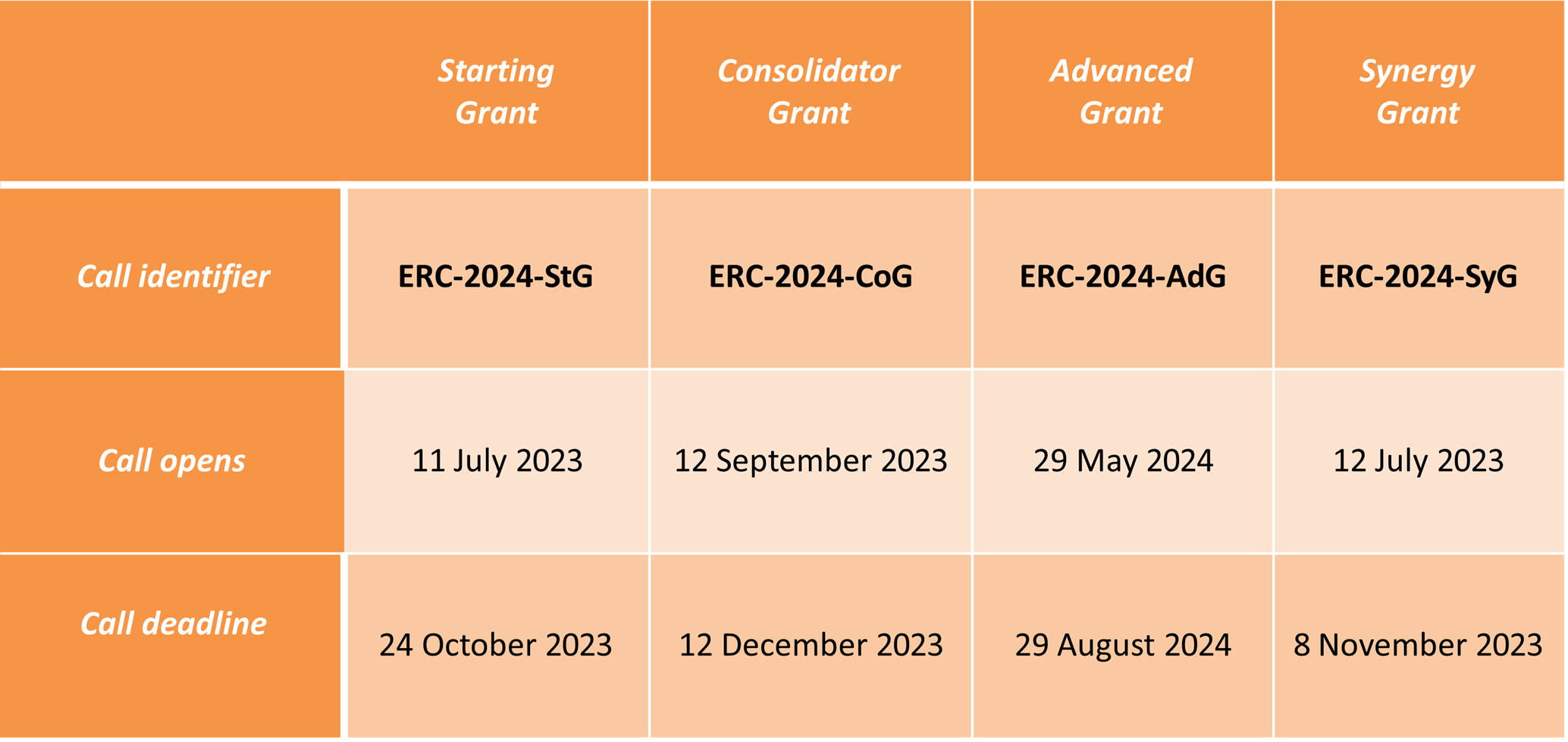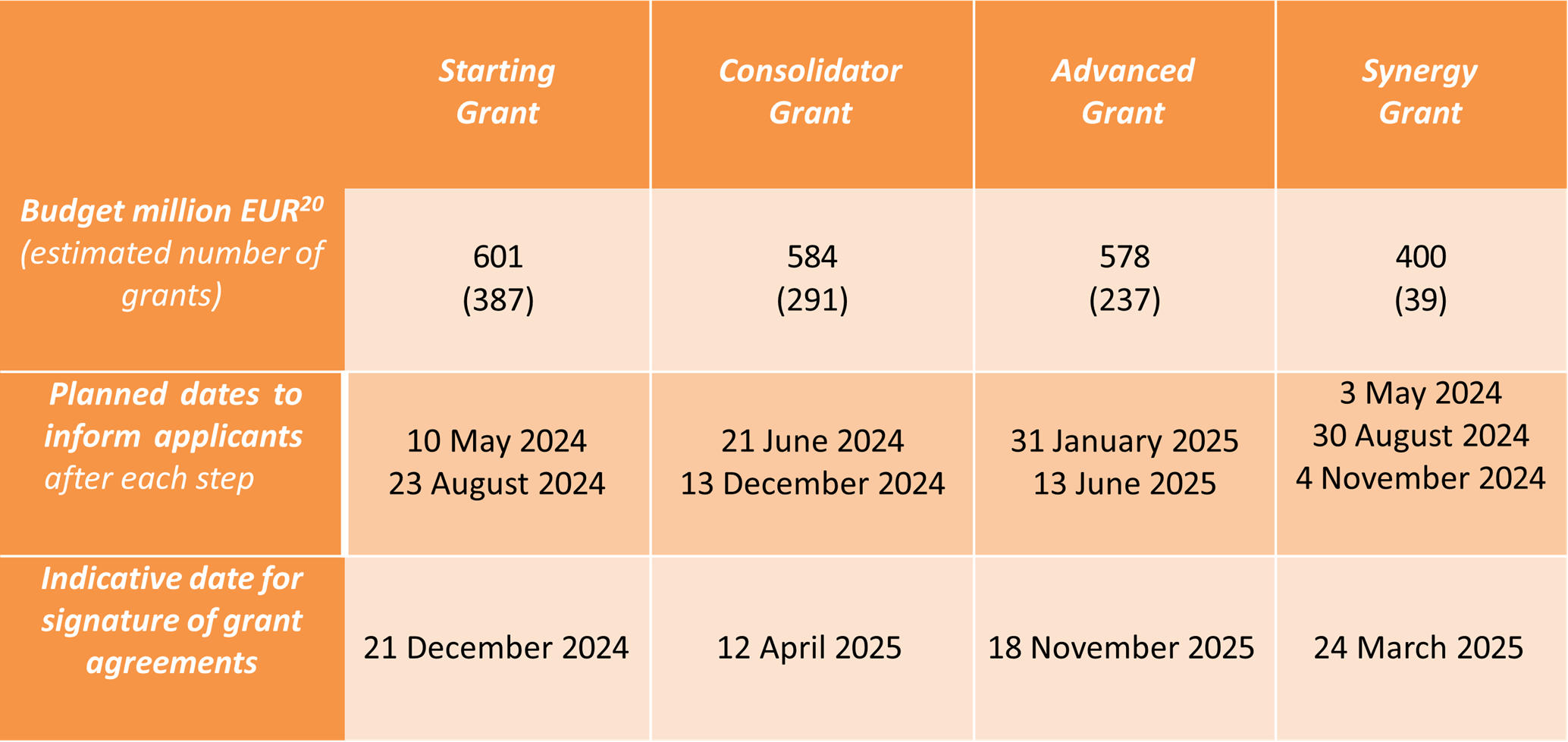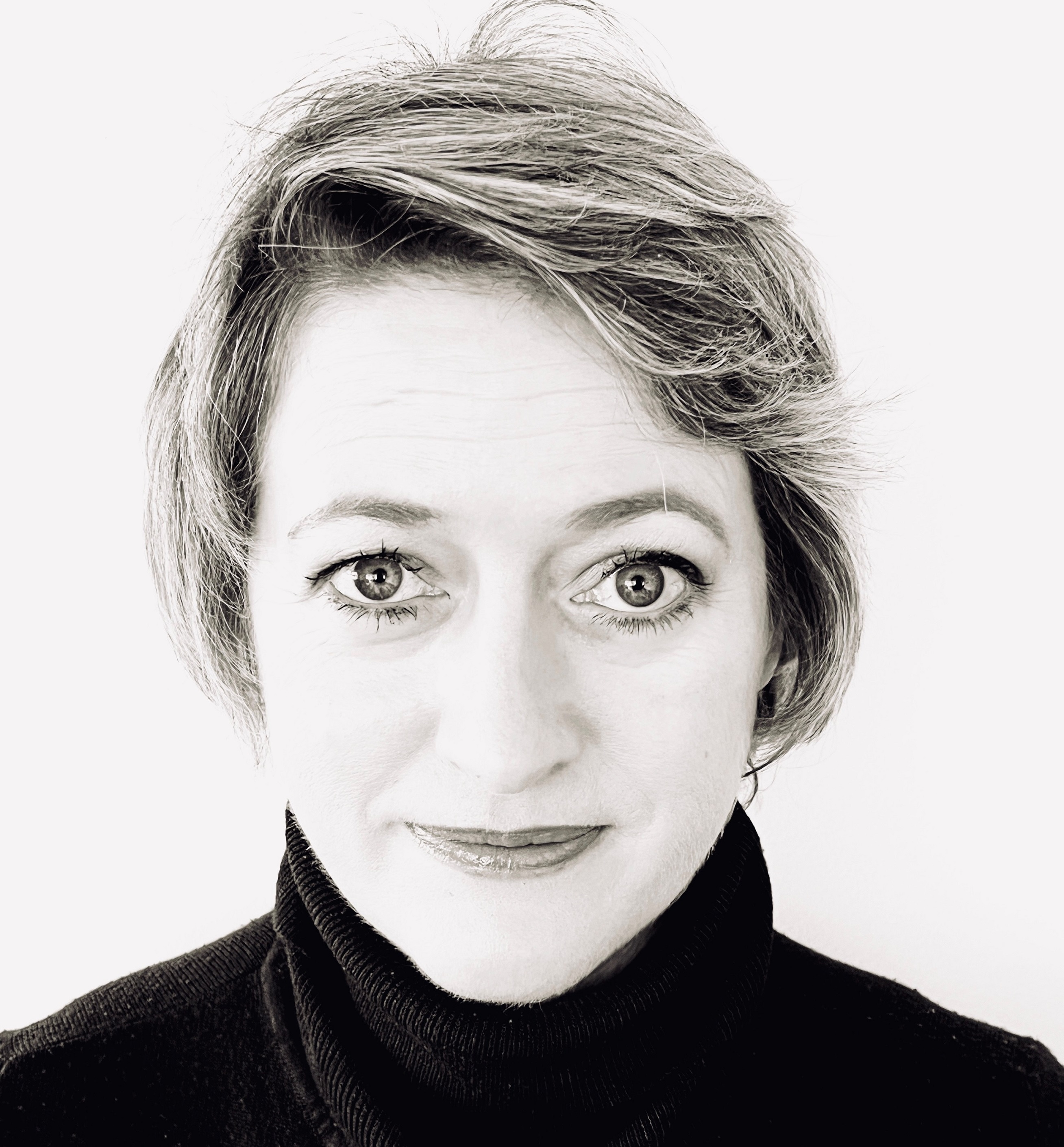European Research Council (ERC) National Delegate (ND) and National Contact Point (NCP) for both the Physical Sciences & Engineering and Life Sciences domains, and NCP Research Infrastructures
Science Foundation Ireland

Over €93m in ERC funding secured to date under Horizon Europe
With the publication of the latest round of European Research Council (ERC) results this week, it seems an opportune time to provide an update on all things ERC that have transpired since the last update in January.
Starting with those latest results, I would like to extend hearty congratulations to the seven Ireland-based laureates of the latest ERC Starting Grant and to all who have supported them in their success. Based in Irish Higher Education Institutes (HEIs) across the country, the awards total €10.6 million in funding for these exceptional early career researchers. These awards will greatly help the grantees launch their own independent research careers in the pursuit of excellent science and will form solid building blocks for the further progression of world class, ground-breaking research in Ireland.
The awards span across all three domains through a wide range of subject areas with three successes in Physical Sciences and Engineering (PE), and two each in both Life Sciences (LS) and Social Sciences and Humanities (SH). The successful awardees are based across University College Cork (UCC; 2), University of Galway (2), University College Dublin (UCD; 2) and Trinity College Dublin (TCD; 1).
Subject areas covered by these ambitious, blue-sky projects include bacterial biology, evolutionary biology, cancer research, planetary science and history, ie:
- Dr Hilary Browne (UCC): Research will focus on understanding spore-forming gut bacteria biology in the targeting of pathogens;
- Dr Donal Hassett (UCC): Research will delve deep into colonial veterancy of empire ex-soldiers during interwar times;
- Dr James Gahan (University of Galway): Research will centre on the origins of cell differentiation and developmental gene regulation in animals;
- Dr Eoin McEvoy (University of Galway): Research will focus on cancer research, specifically, personalised mechanobiological models to predict tumour growth and anti-cancer drug penetration;
- Dr Fiona Freeman (UCD): Research will design and test a biomimetic testing platform for drug discovery and therapeutic innovations in cancer;
- Dr Jennifer Keating (UCD): Research will explore the connected history of population, environmental change, capital and conflict in Russian Eurasia from the 1860s to the 1920s;
- Dr Luca Matra (TCD): Research will look to the skies to explore exoplanets and belts of exocomets around nearby stars.
Since January, the results of the 2022 Consolidator, 2022 Advanced and 2023 Proof of Concept calls have also been announced and the results are summarised here:
January closed with the announcement of the 2022 ERC Consolidator Grant winners with 10 awards given to excellent scientists based in Ireland, who have 7 to 12 years’ experience after their PhDs to pursue their innovative and frontier ideas. The successful awardees were Profs Aisling Swaine (UCD), Karen Desmond (MU) and Erin McCarthy (University of Galway) and Drs Sarah Doyle (TCD), Marious de Leeuw (TCD), Pablo Gracia (TCD), Aoife Daly (UCC), Chaira Bonfiglioni (UCC), Irial Glynn (UCD) and Philip Cardiff (UCD). Spanning a diverse selection of research fields, the almost €20 million in funding drawn down through this call will support blue-sky research in the fields of musicology, sociology, history, immunology bioengineering, law, psychology and mathematics.
There was national success again announced with the publication of the 2022 Advanced Grant results in late March, through which six outstanding research leaders based in Ireland were awarded a total of almost €15 million to conduct cutting-edge research. The wide breadth of fields to be studied under this call nationally range from architectural history, to sociology, to law, and from bioprocessing, to nanotechnology through to history in early modern Ireland. The six grantees, based at UCD (2), TCD (2), Maynooth University (MU;1) and UCC (1) are Profs Jane Ohlmeyer, Christine Casey, Kenneth Dawson, Niall English, Jane Gray and Dagmar Schiek.
In July, the ERC published the names of the new Proof of Concept Grant (PoC) awardees. The PoC grant competition is open only to ERC grantees, and candidates are only eligible to apply for funding if they have ongoing or recently completed research projects supported by Starting, Consolidator, Advanced, or Synergy Grants. The PoC grants help ERC grantees explore the commercial or societal potential of their research findings and three outstanding researchers in Ireland successfully proved the competitive nature and potential of their research by being awarded through the latest PoC call. The three awardees, based at TCD, UCD and University of Galway are Profs Daniel Kelly, Dimitrios Zevegolis and Martin O’Halloran, respectively. These PoC awards will help further the research conducted under their mono-beneficiary grants in the areas of material science and bioengineering.
Ireland has now surpassed €93 million in ERC awards since the beginning of Horizon Europe, a very healthy figure for this stage of the framework. Once again, many congratulations to each of the award beneficiaries on their success and indeed the teams of support staff and colleagues who supported them through the onerous task of proposal preparation, through applying to interview preparation, where applicable. I hope that these successes encourage more of our talented research cohort to apply to future ERC competitions.
Moving onto future competitions; the adoption and release of the ERC 2024 Work Programme in July brought with it some changes to the usual format of the calls, including new elements in the assessment of research proposals and candidates’ CVs and in the evaluation process. It also introduces lump sum funding in Advanced Grants and makes changes in the structure of evaluation panels. Details on these changes and the Work Programme itself can be found here.
Most importantly, dates and details to be aware of are highlighted in the tables below which provide an indicative summary of calls from the 2024 budget, including important provisional dates and budget:
Indicative summary of calls from the 2024 budget, including provisional dates and budget


A quick reminder of national supports for prospective candidates to the ERC. Nationally, we support prospective applicants in the form of Enterprise Ireland awards for ERC Support Preparation. We strongly recommend this highly supportive scheme for the preparation of what can be a quite onerous application process. Supports include but not exclusive to; teaching buy-out options, consultancy/professional services and research/administration supporting preliminary data gathering and proposal preparation. The maximum grant for Enterprise Ireland ERC Proposal Preparation Support is €16,000 (inclusive of VAT). Applications to Enterprise Ireland for ERC Proposal-Preparation-Support must be submitted no later than six months prior to the ERC call closing date. Enterprise Ireland ERC Proposal Preparation Support was previously valid for 12 months from the date of submission of an application to Enterprise Ireland for support, but this has been increased to a 24-month duration on a pilot basis for applications received from 18 Jan 2023.
As National Contact Points (NCPs) for the ERC, The Irish University Association (IUA) in joint partnership with the Irish Research Council (IRC) and Dr Maria Nash (Science Foundation Ireland (SFI) and ERC National Delegate) are here to support potential applicants and ERC national support structures. While the IUA/IRC hold the NCP role for the Social Sciences and Humanities domain (a new recruit for this role will be in position by the end of September), I am the NCP for both the Physical Sciences and Engineering domains and we both welcome all queries across all domains and ERC stages through contact details found here.
Finally, wishing all prospective applicants to ERC competitions the very best of luck in their applications to the 2024 Work Programme and beyond and indeed best wishes to our awardees as they progress in their ambitious research endeavours.

